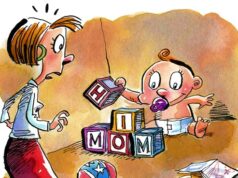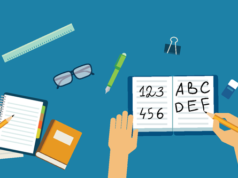What are learning theories? Education is fundamental for us. Often we show our desire to learn something. It doesn’t matter if you want to attend an English course or know how to use a digital camera. Yet we are generally unaware of how new knowledge is incorporated. What about learning? What do behaviorists like Pavlov think? What about constructivists like Piaget? What is Ausubel’s learning theory? What about Bandura’s social learning theory? In addition to answering these questions, in this article, we will see how you can integrate these answers into your daily life.
What are learning theories?
These theories are different sets of explanations that attempt to delve deeper into the vital phenomenon of learning.
And what is learning? How does our brain learn? We all know it, but if we try to define it… it gets more complicated. This is because it is a difficult concept to define, which can be interpreted in different ways. We experience it in the first person and we observe it daily, both in ourselves and in others. In this article, we will focus on the following aspects:
1) Changes we can observe in behavior.
2) Changes taking place in our head.
To be able to say that a fact is due to a learning process, it must be stable. It is due to experience and differs quite a bit from person to person and from situation to situation.
In life, everything is learning. If we don’t internalize certain things, then we would have to waste an immense amount of time doing things as simple as finding our house, shopping at the supermarket, or figuring out the exact word to say what we want to say. What if we had to do all of this step by step day in and day out?
Moreover, learning is not just about what we learn at school or what we are taught at home. It also includes how we should behave in society. Imagine that you are an alien who recently arrived on Earth and this is your first time going to a birthday party. Why do people give gifts? What would you do when everyone starts singing happy birthday? Fortunately, we are also learning what to do in these situations so that we don’t feel like Martian.
Who is dedicated to learning theories?
Professionals who try to understand the mysteries of learning come from many different disciplines, such as psychology, pedagogy, social education, etc. It is necessary to adopt a global vision to contemplate such a complex phenomenon. They all have a common goal: to understand this process so that they can predict and control it, to make people’s lives easier.
Why are they doing it?
Learning is essential for our well-being. There is an urgent need to theorize on the subject to achieve such important objectives, such as the creation of educational programs that better adapt to the needs of future generations. But it is also essential to know the basics to find a more effective solution to everyday challenges and to adapt better to the world around us.
How do they do it?
Most likely, we imagine ourselves to be experts working with children in a classroom. In addition to using methods such as interviews, questionnaires, or observation, in laboratories also experiment with human beings and other animal species such as mice or rabbits (respecting ethical standards of course). Animals are essential to explain the most basic actions.
The circumstances that lab rabbits have to adapt to (jobs like foraging for food) are vastly different from those we have to adapt to (interacting with hundreds of people on social media, trying not to be badly seen by our leader, etc…) which offers us an infinite number of possibilities and situations. However, some of the results obtained in laboratories can be extrapolated to our daily lives.
Main theories of learning
In this chapter, we are going to know what the most popular theories of learning say.
- Learning theories: Pavlov
Pavlov is a Russian psychologist and physiologist famous in the history of psychology for his findings on behaviorism. This psychological current predominated during the first half of the 20th century in the United States. He searched for the answers to the secret of learning in the laboratory under extremely strict conditions.
Behavioralism wanted to demonstrate that psychology is real science. The protagonists of his experiments were mice, doves, and even Pavlov’s famous dog. In this current, we can highlight behaviorists like Skinner, Thorndike, Tolman, or Watson.
Pavlov defended classical behaviorism. According to this current, learning occurs when two stimuli are associated more or less at the same time, one stimulation is unconditioned and the other is conditioned. The unconditioned stimulation causes a natural response from our body and it begins to chain the conditioned stimulation by associating it with the previous one.
For example, when I eat a pasta dish with tomato sauce (conditioned stimulation) I suddenly have a stomach ache (unconditioned stimulation), I may relate my discomfort to the tomato paste. Later a conditioned response will occur which is my loathing for pasta with tomato sauce recently acquired.
This theory also explains other processes like the generalization of the stimulations, knowing that all the green lights tell us that we can cross, or the extinction when we stop drawing because we are no longer given a reward to the school.
These ideas gave rise to numerous later investigations, but also provoked many criticisms. This type of learning is too rigid to explain much of human behavior. New models continue to revise these thoughts.
- Learning theories: Piaget
Piaget developed his theory from a constructivist position, arguing that children play an important role in learning. For him, the different mental structures combine with each other through experience, through adaptation to the environment and the organization of our mind.
Learning exists through changes and new situations. Our perception of the world is renewed as we grow older. This process is made up of different patterns that we mentally order. Adaptation takes place through the process of assimilation, which changes external reality, and the accommodation process, which changes our mental structures.
For example, if we have just known a new neighbor and have had bad experiences in the past, we will think of “another gossip” (assimilation). However, if we find that the latter is discreet and cautious, then we will be forced to alter our judgment (accommodation) and recognize that there can also be pleasant neighbors.
On the other hand, the organization provides the integration of different adaptations throughout our development and between the different stages of development ( vertically ) or in the same stage of development ( horizontally ). Adaptation and organization are complementary, thanks to “ balancing ”, which self-regulates our learning.
- Learning Theories: Meaningful Learning from Ausubel
Ausubel is one of the main players in constructivism and was strongly influenced by Piaget. This psychologist and educator believed that for someone to learn, you have to act on your existing knowledge. For example, if I want my child to understand what a mammal is, first I should check if he knows what a dog is and I should know how he thinks in order to act on it. These concepts are integrated thanks to the organization of the preliminary concepts and the search for coherence in our brain.
This theory is very practice-oriented. Meaningful learning contrasts with learning from memory (remembering long lists without interruption) because it produces knowledge that is much more durable and is better integrated. Over time, concepts are linked and prioritized to save a lot of time when we want to talk about a specific subject or do a particular thing, such as playing basketball for example.
- Learning Theories: Bandura’s Social Learning
Bandura’s theory emphasizes the role of social variables and unites the behavioral perspective with the cognitive perspective, it is an approach that prioritizes the study of mental processes. This theory asserts that virtually all of our behavior is learned through observation and imitation.
We have the final say in deciding how we want to act, but the role models we are exposed to influence us a lot. This is why it is very important to pay attention to the violence that can be seen on television by the little ones.
Children may know that it is wrong to hit a classmate, but if they have internalized the violence because of their favorite TV series, they may be engaging in aggressive behavior depending on the timing and the situation. context. That is, if they see on television that a problem can be solved with a fist, maybe they will push their friend the following week to get a toy at school.
Applying theories of learning to education
Often when we are told about learning, we think of children who go to school. This process occurs in all stages of our life, but what we learn in childhood and how we do it marks us forever. All parents want to know the keys to learning, to improve the education of their children.
We live in a changing environment, we are exposed to a large number of people and situations which are from the most common to the most exotic that one can imagine. The professionals of the future should be able to cope with a society that is changing at an ever-greater speed every day.
We must find a way to educate the members of the next generation so that they know how to adapt to an increasingly virtual and more globalized environment. As a first step, we must continue the investigation of the theories of learning and propose other alternatives so that they can be adapted to reality. This will allow us to move forward and recreate educational methods that will allow us to develop the maximum potential of each person.
Making discoveries in this area is an ambitious and complicated task. But we can observe the reactions of our children by combining different teaching methods so that they are better suited to them.
For example, if we want our child to learn to speak English, we can try to make him sing songs in English or give him small rewards every time he answers a question well in an educational game. With a flexible learning system that takes into account the particular needs of each person, one can obtain an additional and achieve better results.
What is the best learning theory?
Logically, postures so different from each other make us doubt. Why don’t they agree? Who is it that is right? Who is it that is wrong? To solve these questions, we can imagine the theories as if they were about people. No two are the same. Each looks at reality from a different point of view.
You have to remember that these models were designed and developed for people like us, with our different experiences, our points of view, our contexts, our different objectives, etc …
At the moment, neither of these theories allows us to fully explain learning. These explain learning as professionals discover about learning. These are dynamic models which are not necessarily final.
Practical tips for using learning theories in your daily life
- Observe the learning outcomes
It doesn’t matter whether you want to improve your learning or that of a loved one. For example, imagine that your partner wants to play sports, but it is difficult for him to develop healthy habits and is a little lazy. You can try to find a time when he is relaxed, draw parallels between his favorite activities and his new sport, set small goals, etc… This way we will know what is working and what is not. - Don’t worry if a particular learning method doesn’t work.
Let us not forget that it is not only the result that matters, but that we can also benefit from the learning process. Maybe the problem is, you haven’t found the best way to learn for yourself. It’s likely that as you try and get to know yourself, you’ll eventually find the optimal strategy to achieve your goals. - Don’t obsess over these theories
These explanations help us to establish a good theoretical basis. But we must remember that each person is different and that depending on the situation we may need one method or another. The process that will be effective in eliminating a phobia will not be the same as the process that allows us to memorize a large amount of information.






What i don’t realize is actually how you’re no longer actually much more well-liked than you might be right now. You’re so intelligent. You understand therefore significantly in the case of this matter, made me personally believe it from a lot of numerous angles. Its like women and men don’t seem to be interested until it is something to do with Lady gaga! Your own stuffs nice. All the time take care of it up!